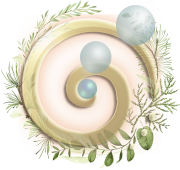
Allergic rhinitis Allergy Anemia Antipruritic Antiseptic Apple cider vinegar Arthritis Asthma
Allergy, or atopy, is a disorder of the immune system, which results in an extreme inflammatory response. The following is a list of common allergic reactions:
Common symptoms include skin rashes (eczema and hives), sneezing, coughing, bronchoconstriction, wheezing, shortness of breath, redness and itching, feeling of fullness in the ears, inflammation of the sinuses, swelling of the nasal mucosa, abdominal pain, bloating, vomiting, diarrhea. Depending on severity, and if untreated, an allergic reaction can lead to coma or death.
Anemia literally means lack of blood (from Ancient Greek) and it is characterized by a decreased number of red blood cells or a decreased hemoglobin count in the blood. Anemia is the most common disorder of the blood.
There are many causes and many types of anemia, but the most common type is iron deficiency anemia.
Mild cases of iron deficiency can be remedied by a specific iron-targeted diet.
Here are some iron-rich foods:
Antipruritics are remedies for itching. The itching can be caused by an insect sting (bees, wasps, mosquitos, etc.), by plants (poison ivy), allergic reactions, chickenpox, sunburn, etc.
There is a number of herbal and other natural anti-itch remedies that bring quick relief.
Antiseptics inhibit the growth of microorganisms and therefore reduce the possibility of infections and inflammations. The historically earliest use of antiseptics was the embalming of the dead. Antibacterials are antiseptics which also act against bacteria.
Just as our body produces antiseptics on its own, so do many plants. Their extracts can be used to either help us externally (treat wounds, etc.) or help our immune system (e.g. antiseptic herbal teas).
Essential oils are more potent than herb parts, simply because they are more concentrated, but if you happen to be in nature, herb parts (usually leaves) will do just fine.
Thyme - leaves or oil.
One of the most powerful natural antiseptics.
Eucalyptus - leaves or oil.
Oil used for surgeries until the end of the 19th century.
Tee trea - oil (from Melaleuca alternifolia)
Lemon - juice.
Oregano - leaves, flowering stems or oil.
Lavender - flowers or oil.
Chamomile - flowers or oil.
Mentha - leaves or oil.
Sage - leaves or oil.
Cider is a beverage made from apples, which is why apple cider vinegar is sometimes simply called cider vinegar. Apple cider vinegar is a vinegar made from apple must or from cider.
Other than for food and cooking, apple cider vinegar has various health applications, however when using it for your health, it is important to really have the natural, organically grown, unfiltered as well as unpasteurized product. Some commercially sold cider vinegar is of a much lesser quality and would therefore not be as efficient as the all-natural variant.
Apple cider vinegar strengthens the immune system, cures skin conditions (acne), helps with sore throats, reduces sinus infections, balances high cholesterol, promotes weight loss, and more.
Arthritis, literally translated 'inflammation of the joints', is a group of over 100 conditions involving damaged joints. The most common form of arthritis is osteoarthritis, degenerative joint disease, which can be brought on by a trauma, by an infection of a joint, or by age. The biggest problem or complaint caused by arthritis is the associated pain. There is currently no cure for rheumatoid arthritis or osteoarthritis.
The best way to prevent arthritis is physical activity. Eating healthy and avoiding overweight also helps.
 Folk remedy
Folk remedy
For easing the pain from arthritis: Ginger, urtication with stinging nettle, or
2 teaspoons of honey with 2 teaspoons of apple cider vinegar dissolved in a small glass of water.
Asthma is a chronic inflammatory disease of the airways, caused by environmental and genetic factors. The following environmental factors are considered common risks for asthma development:
Common symptoms include wheezing, chest tightness, shortness of breath, cough.
Chamomile, stinging nettle, ginger, gingko, onions, horse raddish
All the information provided within the Herbalism & Healing glossary and guide is collected and shared responsibly and to the best of the author's knowledge. Neither the author nor the website offer any guarantees for any of the information, nor do they take any responsibility for anything that may or may not happen to you. However, the author does use and apply the information exactly as presented within these pages. It is meant to help, but what you do with it is up to you.
It is your life. Live it well.